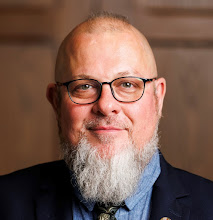 |
| My makeshift desk at AmmutsØn Craft Beer Dive, Vienna. Corpus Christi holiday, 8th June 2023. |
 |
| Courbet would be aghast at the establishment using his works to propagate climate anxiety! |
Time crumbles things; everything grows old under the power of Time and is forgotten through the lapse of Time. The young are permanently in a state resembling intoxication. Remember that time slurs over everything, let all deeds fade, blurs all writings and kills all memories.
 Donate
Donate








 The Political Flâneur: A Different Point of View
The Political Flâneur: A Different Point of View